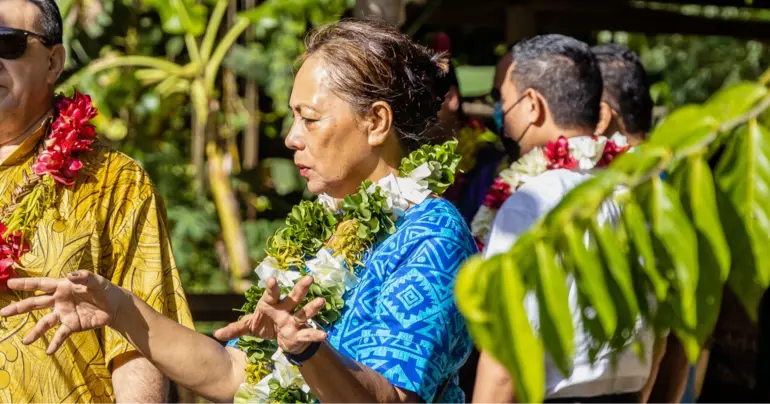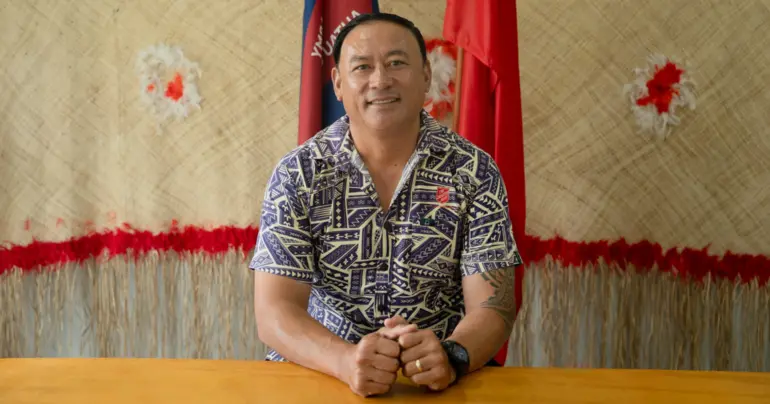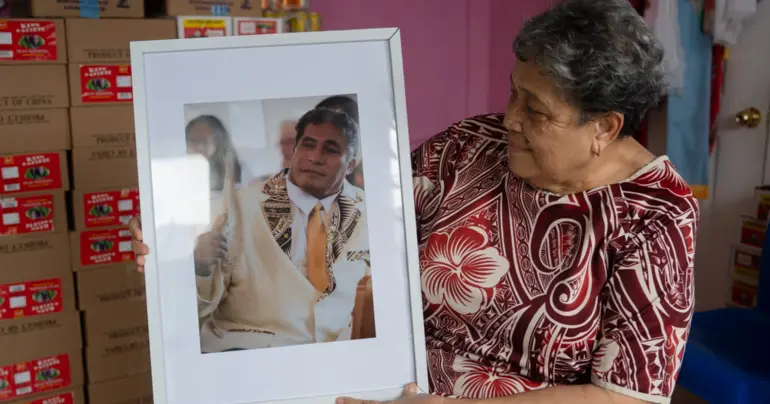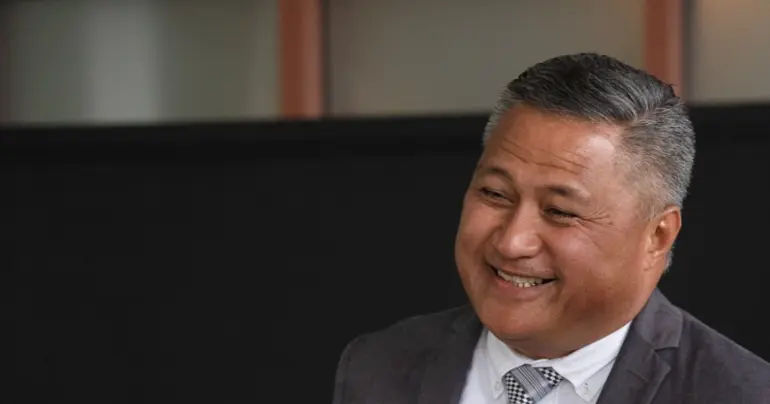Call for Samoa, Pacific coronavirus vaccine priority
 By Marc Membrere
•
06 July 2020, 3:58PM
By Marc Membrere
•
06 July 2020, 3:58PM
Samoa and other Pacific nations must be given a place in the queue of nations to receive a coronavirus vaccine as soon as it is manufactured, an Australian health expert says.
Associate Professor David Anderson, Deputy Director Partnerships of the Burnet Medical Institute in Australia, said that once a disease like COVID-19 arrives in a country like Samoa it is too late to start a vaccination programme.
“If the virus gets into a population which does not have a vaccine particularly with a reasonably high population density in village life, it will spread really quickly,” Professor Anderson said in a phone interview with Samoa Observer on Saturday.
"The concern, of course, is that because it does not cause obvious disease in younger and healthier people often have no symptoms it can spread a lot before you realise it is present in the population with some of the other health problems that are common in the Pacific countries such as diabetes and obesity”.
Professor Anderson believes a COVID-19 vaccine will not be available until the middle or end of next year.
He said that the Pacific has survived COVID-19 so far due to the lack of travel. Of the 12 United Nations member states to so far be declared permanently coronavirus free, some ten are islands in the Pacific.
The World Health Organisation (W.H.O) and its key partners recently unveiled plans to purchase 2 billion doses of COVID-19 vaccines for the highest risk populations of the world.
Professor Anderson explained that whenever a vaccine is new it is usually very expensive and it is going to be hard for the small Pacific countries to be able to compete with the large wealthy countries for a limited supply of the vaccine.
The U.S has so far recently taken all of the world's supply of remdesivir, the only drug licensed so far to treat COVID-19.
Remdisivir will not be available for the next 3 months due to the U.S purchasing the entire world supply of the drug, and Professor Anderson advises that "we want to avoid that kind of situation with the vaccine."
When asked about any issue with the administration of the vaccines on the ground in Samoa, firstly he stated that vaccine refusal during the measles epidemic had taught people about the importance of vaccines.
“The second is that this vaccine will need to be given to everyone at every age and none of our past vaccines have been used that way," he said.
Professor Anderson explained that the measles vaccine has been given to children and when necessary, to adolescents.
The papillomavirus vaccine is given to young women and now sometimes to young men, flu vaccine mostly to the elderly, and thinks that the COVID-19 vaccine is needed to be given to everyone.
“Possibly if there is not enough supply it might need to be prioritised to health care workers and the elderly for example but we hope that there will be enough supply that it will not need to be prioritised because the best thing is to get sufficient level of coverage to provide herd immunity, which for measles is about 95% so that meant everyone needs to get vaccinated,” he said.
“For COVID we think it is perhaps more like 70 per cent of the population would be enough to stop the virus circulating but delivering to 70 per cent of the population will be a very big challenge not just for Pacific countries."
While confident that a vaccine will be licensed and available by next year, he does not think that the first vaccine will give long term immunity.
"They may need boosters every year, every two years,” he said.
“As you may know the measles vaccine gives lifelong immunity. You only need to vaccinate someone once for measles, the COVID-19 vaccine will be more like the flu vaccine which really only protects you for a year.
“The world has not been able to eradicate measles where we have an extremely effective vaccine that is easy to deliver. It is hard to see how we will do a better job with a COVID-19 vaccine to completely eradicate this virus."
When asked about why there is a difference in terms of access to vaccines in the Pacific to other countries he explained that it is largely because of the small numbers that are required.
"Each Pacific country needs a very small number of vaccine doses compared to bigger countries, then there is the cost factor," he said.
"But I think that is important in COVID-19 that small countries, not just in the Pacific but small countries everywhere should not have to fight by themselves to get access to vaccines,” he said.
Professor Anderson explained that one of the things learned from the measles outbreak in Samoa last year was about vaccine hesitancy.
“It really is the whole thing about vaccine hesitancy because my understanding of the part of the reason that Samoa had become poor vaccination rates was that people had associated vaccines with some deaths in children that were unrelated to vaccines and that is a common thing among people who refuse vaccines is because they think that they do harm to children," he said.
"I am not sure how well we have taken those lessons for the rest of the world but certainly in Samoa because you have seen what happened when you stop vaccinating. I think Samoa is unlikely to refuse to use a COVID-19 vaccine because that memory is fresh."
 By Marc Membrere
•
06 July 2020, 3:58PM
By Marc Membrere
•
06 July 2020, 3:58PM











